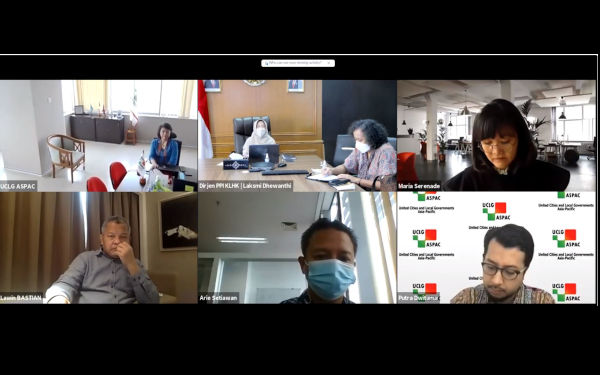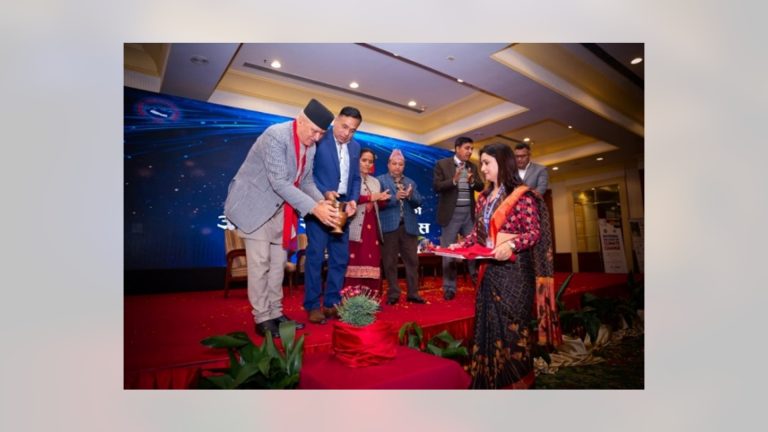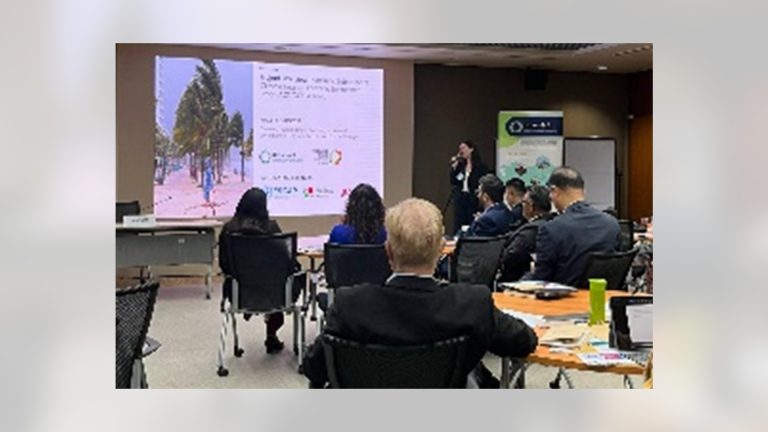Jakarta – United Cities and Local Governments Asia Pacific (UCLG ASPAC) through the Climate Resilient and Inclusive Cities (CRIC) Project successfully organised a virtual courtesy call with the Ministry of Environment and Forestry’s Directorate General of Climate Change on Friday (30/4) in a bid to strengthen the ongoing collaboration to build resilience to climate change.
The courtesy call came at an excellent time since the Directorate General of Climate Change has just undergone the change of leadership with the appointment of Ir Laksmi Dhewanti, MA as the Director General (DG) of Climate Change to replace Dr. Ruandha Agung Sugardiman. The meeting was used to congratulate the new DG and getting acquainted with one another and discuss future priority agenda.
Both the DG of Climate Change Ir Laksmi Dhewanti, MA and UCLG ASPAC’s Secretary General Dr. Bernadia Irawati Tjandradewi agreed upon the importance to ensure that the CRIC Project can truly manifest climate action at a city level. “We’re looking forward to strengthening our collaboration. We also hope that the project (CRIC) can concretely measure project delivery and benefits,” the DG of Climate Change said.
In the virtual meeting, Dr. Bernadia shared some contributions the project is making to increase climate resilience. In terms of climate policy, CRIC contributes to the integration of climate resilience issues into RPJMD (Medium Term Regional Development Planning) in five pilot cities that held local elections. CRIC will also help its ten pilot cities to formulate a climate village (Program Kampung Iklim), to further support Indonesia’s 20,000 Proklim targets by 2024. CRIC also advocates for climate leadership at a city level by obtaining Mayors’ commitment in ten cities to participate in the CRIC Project. “Through this project, we hope that Indonesian practices in building resilient cities can be a successful example that other cities in the Asia Pacific can follow suit,” she said.
The meeting also touched on the significance of knowledge management and utilisation to support policymaking and public awareness purposes. In line with this, CRIC through its five-year implementation will help increase the capacities of local government to mitigate and adapt to climate change. CRIC will ensure that best practices at a city level in terms of governance, collaboration, innovation, local action and financing will be leveraged and replicated to other cities.
“Lead by example”
After presiding over the meeting, the DG of Climate Change said that it is her hopes that “the ten CRIC pilot cities can lead by example”, referring to the message pronounced by President Joko Widodo at the Virtual Leaders Summit on Climate Change on April 22, 2021. In doing so she expressed that UCLG ASPAC needs to connect to other climate change initiatives in the region, take a proactive stand in publishing and disseminating the best practices to other cities and countries and make sure that the project can really deliver by ensuring concrete action at a city level.
By CRIC Project Team (Maria Serenade)











